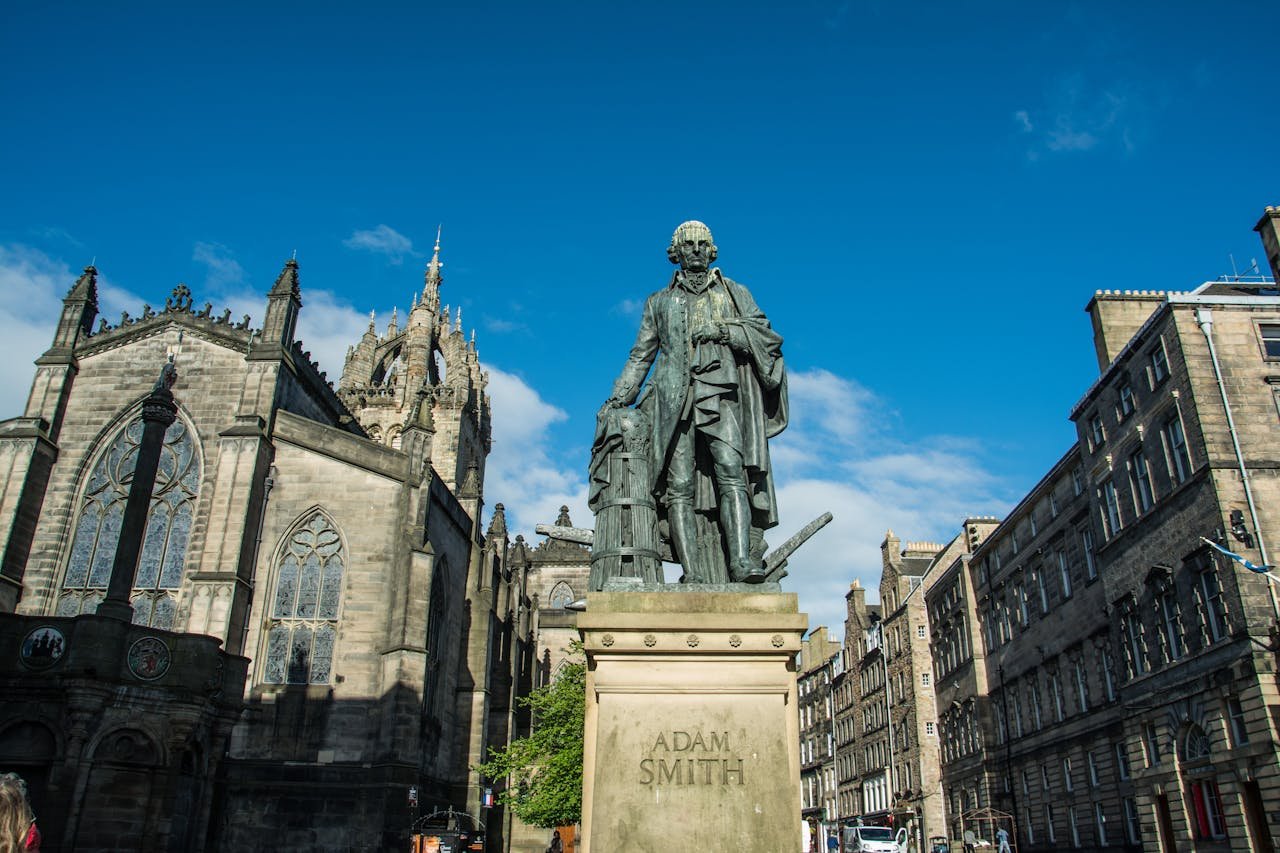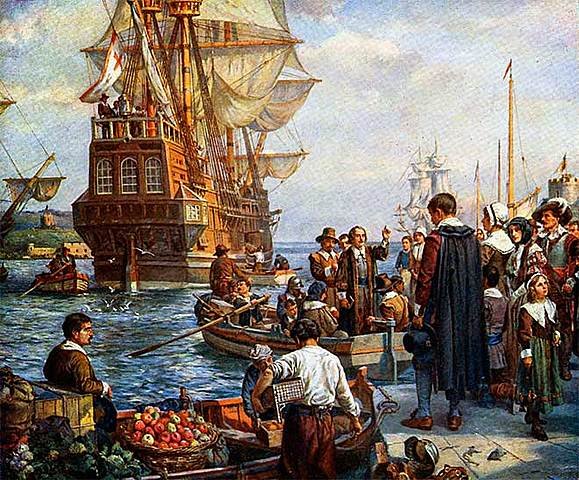Introduction
Thomas Sowell is widely recognized as one of the most influential economists of the 20th century. With a career spanning more than six decades, Sowell has published an extensive body of academic work in fields as diverse as economics, politics, and cultural studies. His rigorous and critical approach has challenged numerous preconceived ideas, establishing him as an authoritative voice across multiple areas of knowledge.
While Thomas Sowell is perhaps best known for his in-depth and incisive analyses of economic disparities, human capital theory, and racial issues, his contributions to the field of international trade are also noteworthy. Throughout his career, Sowell has addressed international trade with clarity and insight that shed light on complex global economic issues and dynamics.
The purpose of this blog is to explore Thomas Sowell’s contributions to the field of international trade. In doing so, it aims to provide a more comprehensive view of his work, highlighting how his ideas have shaped our understanding of trade and economic relations between nations. In addition, this analysis will illuminate the key aspects of his thinking and how they can be applied to contemporary challenges in a globalized world.
Thomas Sowell has approached international trade from various perspectives, including trade theory, economic policy, and the social and political implications of global exchanges. His contributions offer a critical lens through which to question traditional policies and assess the real effects of trade agreements and tariffs on different economies.
In summary, Thomas Sowell’s explorations in the realm of international trade not only broaden his already impressive intellectual legacy but also provide essential tools for better understanding the complexities of an interconnected world. In the following sections, we will delve deeper into these topics, examining specific examples and their significance in today’s context.
Brief Biography
Thomas Sowell, a distinguished economist and author, was born on June 30, 1930, in North Carolina, United States. Throughout his career, Sowell has been an influential voice in public policy and international trade. His academic background is robust: he earned his bachelor’s degree from Harvard, his master’s from Columbia University, and his Ph.D. in economics from the prestigious University of Chicago. During his time in Chicago, he was deeply influenced by the Chicago School of Economics, a school of thought that promotes free markets and minimal government intervention.
Beyond his academic studies, Thomas Sowell has played a significant role in various academic institutions and think tanks. One of his most notable positions is his work at the Hoover Institution at Stanford University, where he has been a Senior Fellow since 1980. His research and publications cover a wide range of topics, from economics and education to racial politics and political history.
Among his most recognized works are Economics: Facts and Fallacies, Basic Economics, and Wealth, Poverty, and Politics. These publications have not only cemented his reputation as a critical and meticulous thinker but have also significantly influenced public debate on international trade and global economic policies. Sowell is known for his ability to break down complex economic concepts into accessible language, which has broadened his reach and resonance beyond academia.
Thomas Sowell’s legacy includes a prolific career as the author of more than 30 books and numerous academic articles. His rigorous approach and commitment to evidence-based research have made him a central figure in discussions on international trade and economic policy. His influence remains strong among current and future generations of economists and policymakers.
Major Contributions to International Trade
Thomas Sowell is an influential figure in the analysis of international trade, known for his significant contributions across various economic areas. Among Sowell’s most important contributions to international trade are three key themes: the theory of comparative advantage, the cultural impact on trade, and his observations on protectionist trade policies.
First, Sowell has deepened the understanding of the theory of comparative advantage, which is fundamental to understanding how and why two countries can mutually benefit from trade. According to this theory, even if one country produces all goods more efficiently than another, both can benefit from exchange if they specialize in the production of goods in which they have a comparative advantage. Sowell has emphasized the necessity of such specialization, highlighting how it fosters efficiency and increases global productivity.
In addition, Sowell has explored the cultural impact on international trade. One of his key concepts is the recognition of how cultural values and institutions influence countries’ ability to participate in and prosper through international trade. Sowell argues that culture can play a crucial role in shaping trade practices, economic relationships, and ultimately the economic success of nations. He has stressed that understanding cultural differences can significantly improve the effectiveness of trade policies and international cooperation.
Finally, Sowell has offered sharp critiques of protectionist trade policies. He has pointed out how such policies, though often implemented with the intent of protecting domestic industries, can have long-term negative effects. According to Sowell, protectionism can lead to lower economic efficiency and higher prices for consumers. He also argues that such policies can trigger retaliatory measures from other countries, further harming international trade and the global economy.
Through these contributions, Thomas Sowell has provided a deeper and more nuanced understanding of international trade, emphasizing the importance of economic theory, cultural impact, and optimal trade policies for fostering global economic development.
Critique of Protectionism
Thomas Sowell has been a consistent critic of protectionism and its implications for international trade. In his many writings, Sowell has argued that protectionist policies, though often presented as a way to protect the national economy, tend to benefit only certain special interests while harming the general welfare and long-term economic growth of a country.
Sowell maintains that protectionism, by imposing restrictions and tariffs on imported goods, creates market distortions that result in an inefficient allocation of resources. This, in turn, leads to higher prices for consumers and fewer choices in the marketplace. Rather than benefiting the national economy, such policies ultimately do more harm by reducing competition and innovation—two elements fundamental to sustainable economic progress.
Moreover, Sowell points out that protectionism tends to favor already established and politically influential industries at the expense of other parts of the economy that do not enjoy the same level of clout. This dynamic of “special privileges” feeds a cycle of non-competitive advantages that reinforce inequality and hinder new growth opportunities. Instead of allowing the market to determine winners and losers, protectionism institutionalizes inefficiency and blocks the development of emerging sectors.
Sowell also dismantles the notion that protectionism protects jobs. He argues that, although it may temporarily save certain jobs in uncompetitive industries, such policies ignore broader and long-term effects. Resources diverted toward protected sectors could be used more productively in competitive industries, generating sustainable jobs and lasting economic benefits.
Analysis of Free Trade
Thomas Sowell is a strong advocate of free trade, arguing that open markets are essential for fostering economic growth and global efficiency. His perspective is rooted in the belief that free interaction between individuals and nations allows for a more effective allocation of resources. Sowell emphasizes that, through free trade, economies can specialize in the production of goods and services where they have a competitive advantage—benefiting not only the parties involved but the global market as a whole.
A central point in Sowell’s analysis of free trade is its positive impact on developing economies. As trade barriers are removed, these countries can access international markets, facilitating the export of their products and the import of essential goods. This international exchange promotes economic development and can reduce poverty by providing these nations with a path toward integration into the global economy.
Sowell also argues that free trade encourages innovation and efficiency. Companies facing international competition are forced to optimize production processes and invest in research and development. This not only improves the quality of available products and services but also leads to lower costs, benefiting consumers. In this way, all economic actors—from producers to consumers—share in the benefits of free trade.
In his analysis, Sowell also warns about myths and misunderstandings related to free trade. For instance, he refutes the notion that protectionism can foster sustained economic growth. On the contrary, he argues that protectionist policies often lead to inefficiencies and suboptimal resource allocation. Therefore, he advocates for policies that keep markets open and competitive.
Sowell’s arguments for free trade offer not only an academic defense but also a pragmatic guide for global economic policy. His approach underscores the importance of maintaining market structures that allow for free competition and exchange, with the goal of achieving greater economic prosperity worldwide.
Historical Comparisons
In his broad exploration of international trade, Thomas Sowell has often used historical examples to illustrate the effects of trade relations on different economies around the world. One of the most effective methods he employs is the detailed comparison of different historical contexts to draw lessons about the impact of trade. These comparisons include both developing economies and those that are already highly industrialized.
In his work, Sowell examines how international trade influenced ancient empires such as the Roman Empire and the emerging economies of the 21st century. For example, he notes that the Roman Empire greatly benefited from trade with foreign regions, acquiring products and resources that were not available locally. This flow of goods not only improved living standards but also strengthened the empire’s infrastructure and political cohesion.
Sowell also draws comparisons to more recent times, analyzing the economic rise of Asian countries like Japan and South Korea after World War II. He argues that opening up to international trade and adopting export-oriented policies were key factors in their rapid industrialization and economic growth. These nations, initially devastated by conflict, managed to restructure their economies and become industrial powerhouses thanks to their integration into the global market.
Another example Sowell highlights is the contrast between the economies of Latin America and those of Southeast Asia. While several Latin American nations adopted protectionist policies and import substitution strategies, Southeast Asian countries chose trade liberalization. This difference in economic policies led to unequal growth, with Asian economies experiencing sustained expansion, while many Latin American economies faced stagnation and recurring crises.
Through these historical comparisons, Sowell provides a clear perspective on the benefits and challenges of international trade. His analyses underscore the importance of trade openness and the adaptability of economic policies in achieving sustainable and lasting development.
Relationship with the Chicago School
Thomas Sowell, a prominent figure in international trade and economic theory, draws significant influence from the Chicago School of Economics. This school of thought, known for its strong advocacy of free markets and rigorous analytical approach, has greatly shaped Sowell’s thinking.
The economist shares many core principles with prominent figures like Milton Friedman, who is essential to understanding the foundations of the Chicago School. Like Friedman, Sowell maintains the importance of free markets as fundamental mechanisms for the efficient allocation of resources and the promotion of economic growth. Both emphasize the need to reduce state intervention in the economy, arguing that free-market policies generate better long-term economic outcomes.
However, Thomas Sowell’s work does not simply adhere to the ideas of the Chicago School. His writing presents unique nuances and, at times, critiques that enrich the economic debate. One of the distinctive aspects of his thinking is his careful attention to the diversity of economic cultures and how these influence market behavior. Sowell addresses cultural differences as key factors in the efficiency and application of economic policies—an angle not always fully explored in market-focused analyses.
In his constructive criticism, Sowell also debates how some laissez-faire conceptions may lack historical and cultural context, highlighting the importance of incorporating such variables into economic analysis. His insistence on a more holistic view of the market demonstrates an intellectual flexibility that complements—and sometimes contradicts—the more rigid positions of other Chicago School economists.
Ultimately, while Thomas Sowell finds in the Chicago School a solid theoretical base for his analysis of international trade, his contribution is enriched by perspectives and nuances that expand the economic discourse, offering a more complex and comprehensive view of how the global market functions.
Criticism and Controversies
Thomas Sowell’s contributions to international trade and other areas of economics have not been without criticism and controversy. His positions, characterized by a laissez-faire approach and strong opposition to government intervention, have often clashed with more interventionist views in the global economy. Sowell argues that free markets are the best mechanisms for efficiently allocating resources and promoting economic growth—a stance that has drawn disagreement from those who advocate for protectionist policies and stricter regulations.
One of the most common criticisms of Sowell stems from his skepticism toward welfare policies and subsidies, which he considers harmful in the long term. Critics argue that this view overlooks the reality of structural inequalities and the need for interventions to correct social imbalances. Sowell has responded by arguing that such policies are not only ineffective but also perpetuate dependency and reduce incentives for personal effort and innovation.
Within the academic community, Sowell’s theories have been both praised and questioned. Some scholars support his insistence on empirical analysis and argue that his research has brought clarity to complex economic debates. However, other critics note that while his theories are rigorous, they do not always account for the sociopolitical context in which they are applied—something that may limit their applicability in certain scenarios.
Politically, his positions have also been divisive. Policymakers have used his theories both to support economic liberalization programs and to criticize expansive government interventions. This polarization has influenced how Sowell’s work is perceived—viewed by some as revolutionary, and by others as insensitive to contemporary social challenges.
Legacy and Current Relevance
Thomas Sowell’s contributions have left an indelible mark on the field of international trade. His analytical approach and ability to break down complex concepts into understandable elements have significantly influenced how economists address globalization and trade. A central aspect of his legacy is the promotion of the free market and its benefits for both developed and emerging economies. Sowell argued forcefully against protectionism, highlighting how trade barriers can limit economic efficiency and global growth.
In the modern context, his ideas on globalization remain a source of debate and analysis. As economies around the world become increasingly interconnected, Sowell’s theories on comparative advantage and specialization continue to provide valuable insights. The contentious issue of protectionist policies, which has re-emerged in the political discourse of several nations, can be effectively countered with Sowell’s arguments in favor of free and open trade.
Sowell has also influenced generations of economists who have adopted and expanded his ideas on free trade. His legacy lies not only in his numerous books and articles but also in his shaping of modern economic thinking. The clarity of his prose and the strength of his arguments have ensured his lasting relevance, making him a key reference point for understanding the dynamics of international trade in the 21st century.
Ultimately, Thomas Sowell has earned a prominent place in the history of economic thought—not only for his theoretical contributions but also for his ability to communicate complex economic theories to the general public. His influence endures, guiding discussions on how nations can mutually benefit through fair and effective trade.


